NBA Star Reveals Struggle With Panic Attacks And How Men 'Suffer Silently'
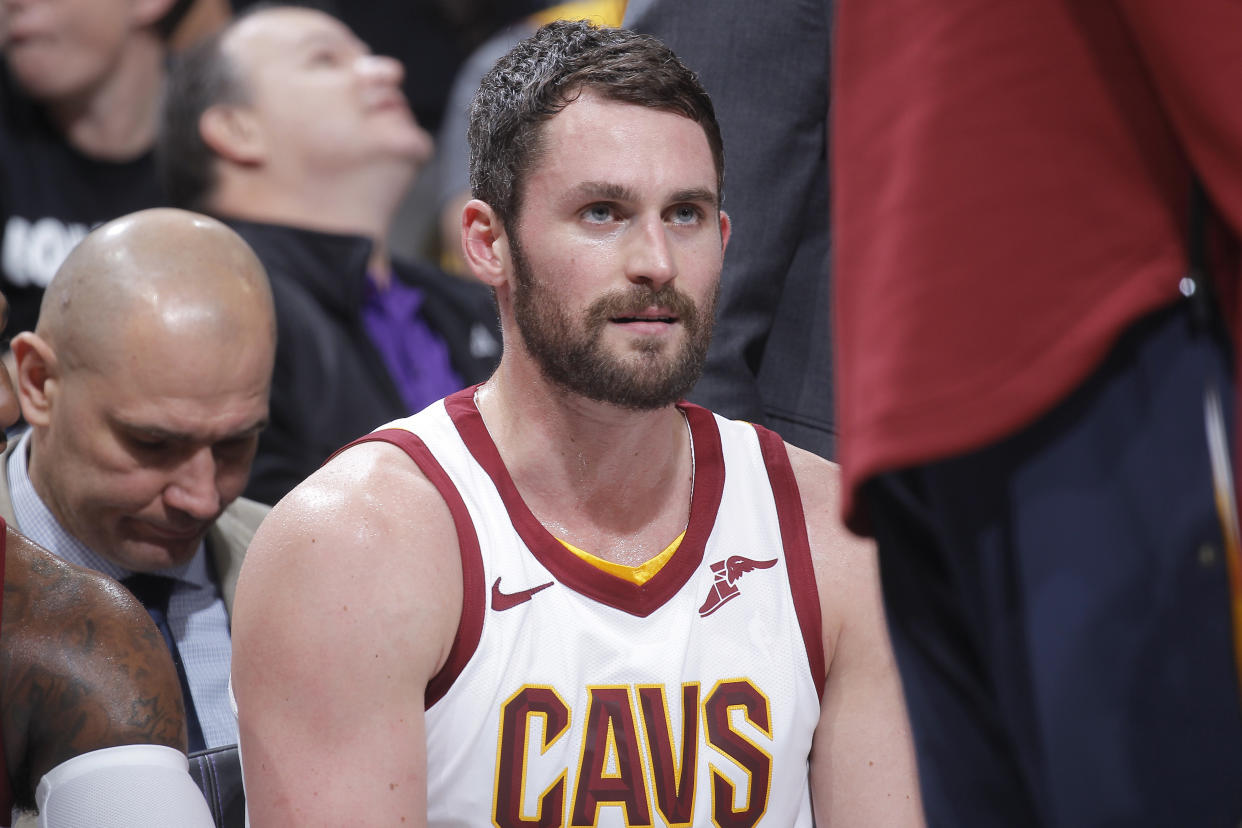
Last year during a home game against the Atlanta Hawks, Kevin Love of the Cleveland Cavaliers experienced his first panic attack.
The episode not only forced the NBA power forward to leave the game at halftime, it forced him to open up about his struggle with mental health.
In an essay for the Players’ Tribune published Tuesday, the 29-year-old athlete detailed what happened when he was hospitalized mid-game in November, how he suffered silently and why he’s speaking out about mental health now.
“It came out of nowhere. I’d never had one before. I didn’t even know if they were real,” Love wrote of his panic attack.
“But it was real — as real as a broken hand or a sprained ankle. Since that day, almost everything about the way I think about my mental health has changed.”
While Love detailed his panic attack in November, his essay didn’t mention what happened when he left a Jan. 22 game due to an undisclosed illness and later missed a practice. His teammates were reportedly upset over his absences, though things settled down once Love explained to the team during a meeting what was going on, ESPN reported at the time.
After Love’s essay was published, Cleveland.com reported Tuesday that Love had disclosed his panic attacks during that meeting.
Love said he had recovered from the November incident and performed successfully at a game two days later, but something else had begun troubling him: “Why was I so concerned with people finding out?”
Love eventually found help through therapy, which he said he had never thought he’d pursue. Through those sessions, Love wrote, he discovered issues beyond the pressures of the NBA that were weighing him down, including the death of his grandmother.
“In the short time I’ve been meeting with the therapist, I’ve seen the power of saying things out loud in a setting like that,” Love wrote. “And it’s not some magical process. It’s terrifying and awkward and hard, at least in my experience so far.”
I’ve never been comfortable sharing much about myself. I thought about mental health as someone else’s problem. I’ve realized I need to change that. https://t.co/355HcQw3Ei
— Kevin Love (@kevinlove) March 6, 2018
Love said he was inspired to speak out about his mental health issues after the Toronto Raptors’ DeMar DeRozan revealed last month that he has been struggling with depression, feelings of loneliness and anxiety.
DeRozan hinted at his issues in a tweet in late February, then later expanded on his experience in an interview with The Toronto Star.
“This is real stuff,” DeRozan told the Star. “We’re all human at the end of the day.
The Toronto guard added, “My mom always told me: Never make fun of anybody because you never know what that person is going through.”
This depression get the best of me...
— DeMar DeRozan (@DeMar_DeRozan) February 17, 2018
In his essay, Love said that men especially need to know it’s OK to speak up about their feelings ― something he had been uncomfortable with for most of his life.
“If you’re suffering silently like I was, then you know how it can feel like nobody really gets it,” Love wrote, before noting what pushed him to write his piece.
Partly, I want to do it for me, but mostly, I want to do it because people don’t talk about mental health enough. And men and boys are probably the farthest behind.
I know it from experience. Growing up, you figure out really quickly how a boy is supposed to act. You learn what it takes to “be a man.” It’s like a playbook: Be strong. Don’t talk about your feelings. Get through it on your own. So for 29 years of my life, I followed that playbook.
The stigma around mental health is a very serious problem for men.
A 2015 survey found that men are more likely than women to hide thoughts of suicide. And, according to the American Foundation for Suicide Prevention, white men accounted for 7 out of 10 suicides in 2016, while the rate of suicide is highest for middle-aged men.
Love addressed this in his essay, calling it an invisible struggle men have to face.
“Look, I’m probably not telling you anything new here,” Love wrote.
“These values about men and toughness are so ordinary that they’re everywhere … and invisible at the same time, surrounding us like air or water,” he added. “They’re a lot like depression or anxiety in that way.”
Loves’ teammates, and other NBA players, have praised Love for being courageous enough to speak up about his struggles. Now, in response to all of the support, the Cavaliers’ forward is asking for others to share their own stories with him.
You’re even more powerful now than ever before @kevinlove!!! Salute and respect brother! ✊🏾💪🏾🙏🏾 https://t.co/6nL6WoZMCm
— LeBron James (@KingJames) March 6, 2018
Great read 🙏🏽 Even the strongest people struggle. Don’t be afraid to reach out! https://t.co/e0N37rBkbb
— London Perrantes (@London_Tyus) March 6, 2018
So powerful bro. You’ve changed lives with this piece. ✊🏽 https://t.co/emvV34dj4R
— Dahntay (@dahntay1) March 6, 2018
💯💯💯💯💯 https://t.co/0P6fwurAPI
— Isaiah Thomas (@isaiahthomas) March 6, 2018
keeping it real. respect @kevinlove 🙏 “you never know what someone else is going thru, treat people like you would want to be treated. Be yourself!” https://t.co/UxAYdpZ4mR
— Jonas Jerebko (@JonasJerebko) March 6, 2018
Wow...I can't even describe how grateful I am for the love and support. More than anything, it's been amazing to see YOU tell your own stories about Mental Health. Let's keep it going. If want to share your story you can email me at kevin@playerstribune.com (yes I'll read it).
— Kevin Love (@kevinlove) March 6, 2018
Read Love’s full essay on mental health here.
Love HuffPost? Become a founding member of HuffPost Plus today.
Also on HuffPost
Zayn Malik

“Unfortunately, my anxiety that has haunted me throughout the last few months around live performances has gotten the better of me,” he wrote in the statement. “With the magnitude of the event, I have suffered the worst anxiety of my career.”
Wayne Brady
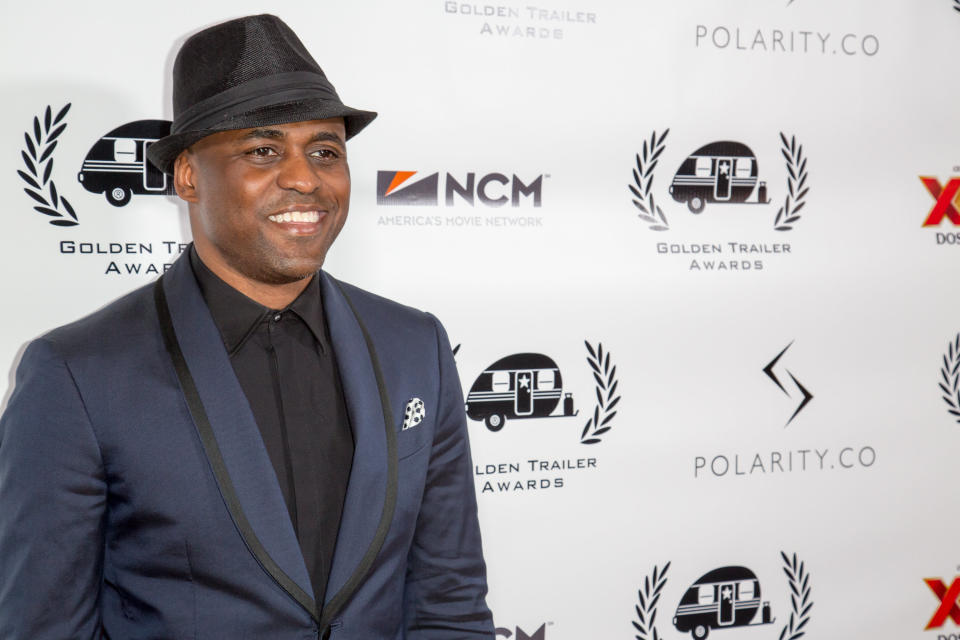
"It took me a while to get my stuff together to go, 'You know what? If you're not happy, you have to do something about it,'" he said. "Just to admit that you are feeling this way is a huge step. To claim that, to say, 'Why do I feel dark? Why do I feel unhappy? Let me do something about this.'"
Bill Clinton

"Mental illness is nothing to be ashamed of, but stigma and bias shame us all," he stated.
Howie Mandel
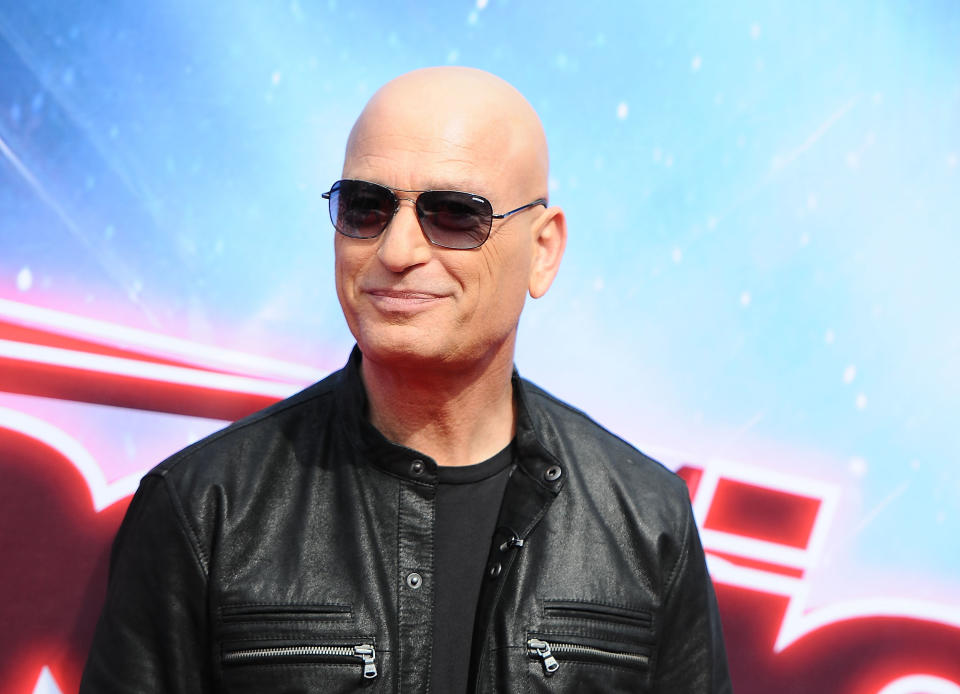
"We take care of our dental health. We don't take care of our mental health," he told CNN. "I think the solution to making this world better is if we would just be healthy, mentally."
Jon Hamm

"I did do therapy and antidepressants for a brief period, which helped me," he said. "Which is what therapy does: it gives you another perspective when you are so lost in your own spiral... It helps."
Brandon Marshall

"We need to accept that mental illness is a disease — and like any other disease, it needs stronger research, early screening and treatment, especially for young people," he wrote.
John Green
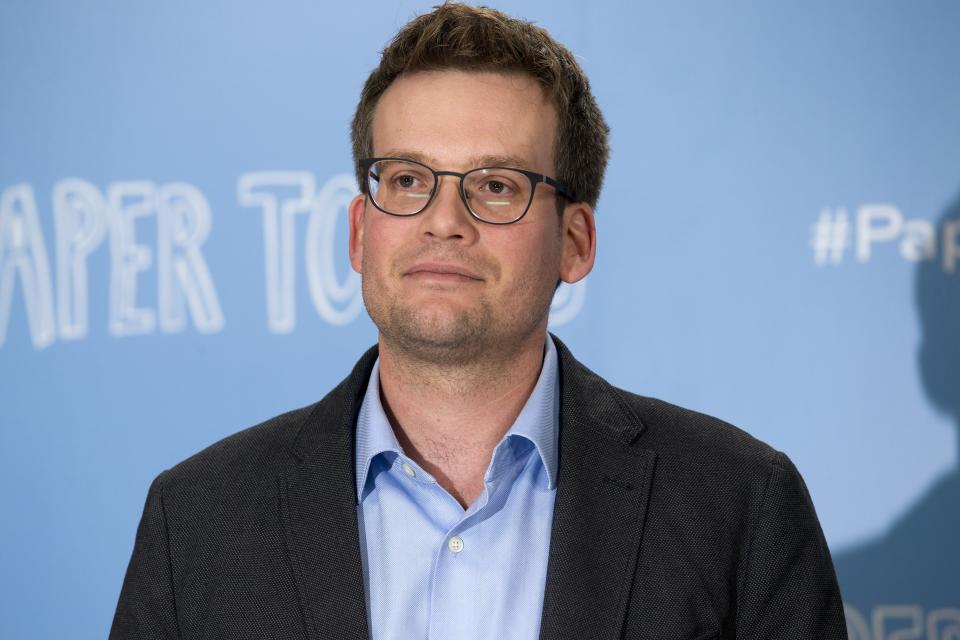
“There is hope. There is treatment,” he wrote to a fan in a Reddit AMA. “You are not alone, and while I know the struggle feels at times completely hopeless and futile, there is a far shore for the vast majority of people, and I wish you the best.”
Jared Padalecki
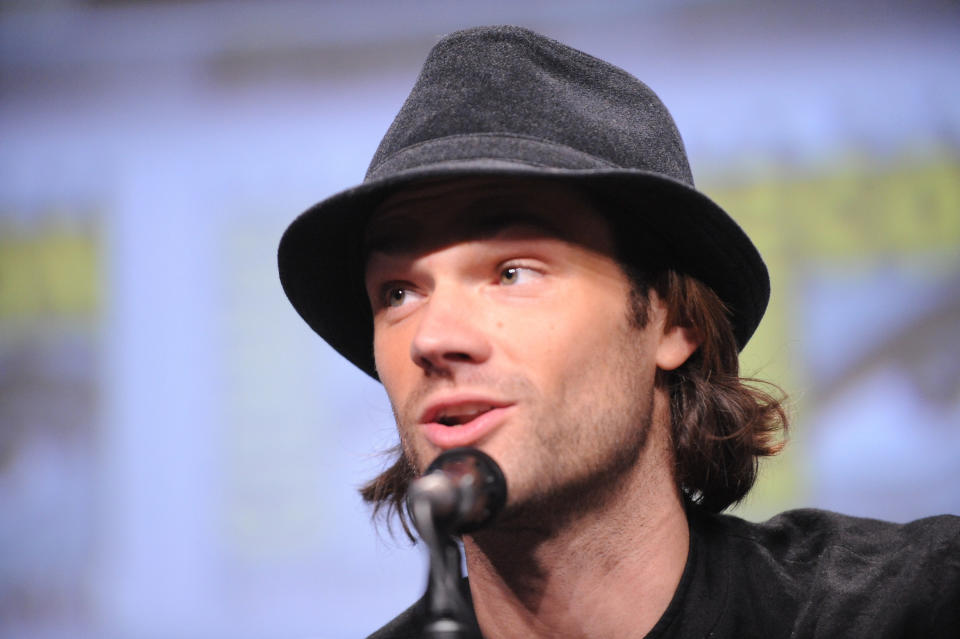
“I say constantly that there’s no shame in dealing with these things,” Padalecki told the magazine. “There’s no shame in having to fight every day, but fighting every day, and presumably, if you’re still alive to hear these words or read this interview, then you are winning your war. You’re here.”
Reid Ewing
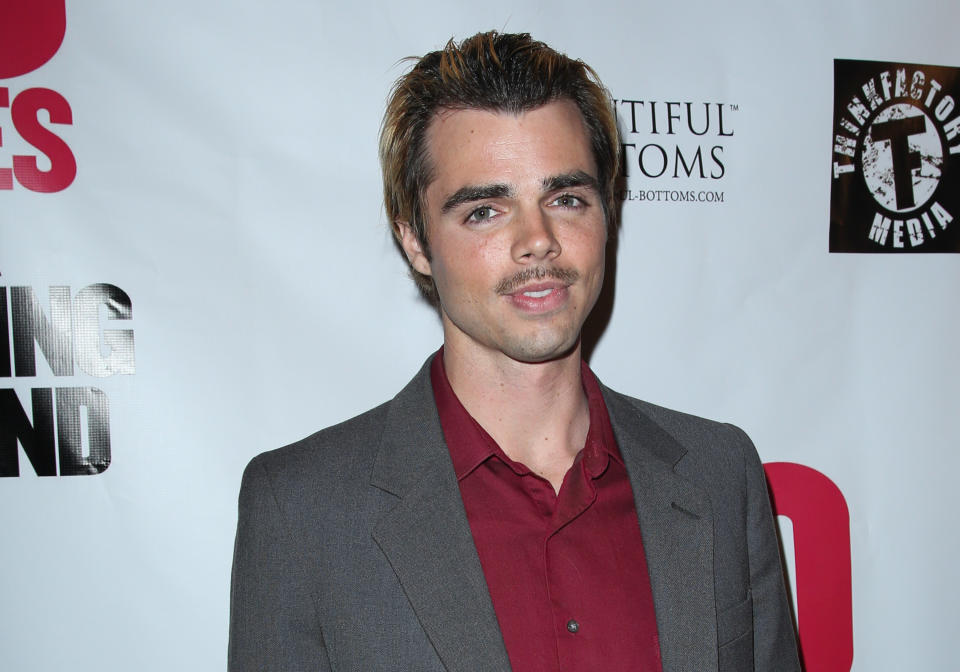
"In my case, my looks were the only thing that mattered to me," he wrote. "I had just moved to LA to become an actor and had very few, if any, friends. I’d sit alone in my apartment and take pictures of myself from every angle, analyzing every feature."
Dwayne Johnson
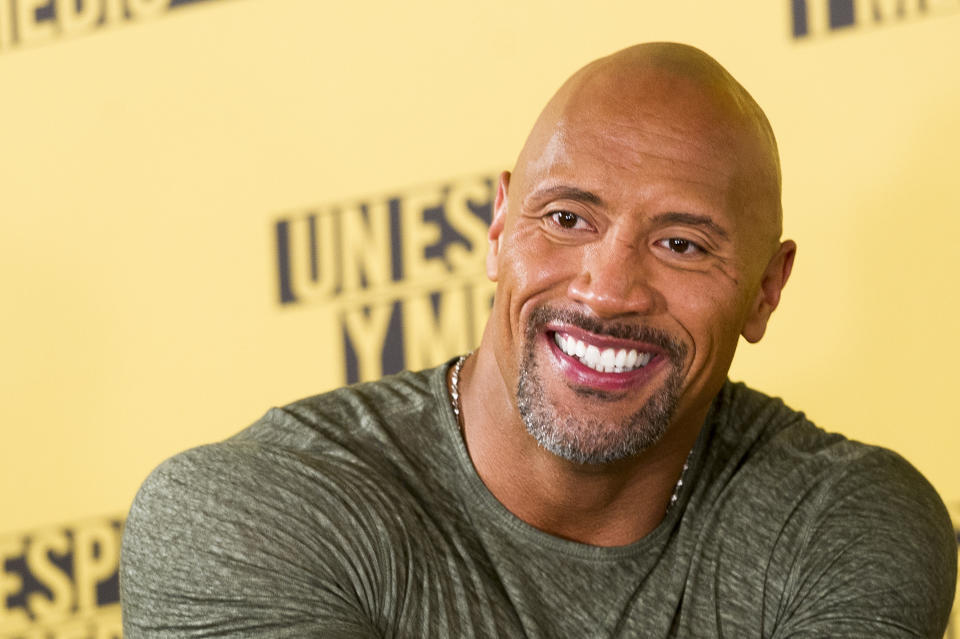
"Have faith that on the other side of your pain is something good," he said.
This article originally appeared on HuffPost.

